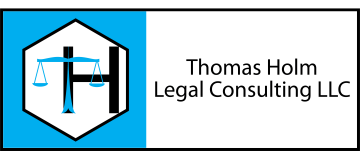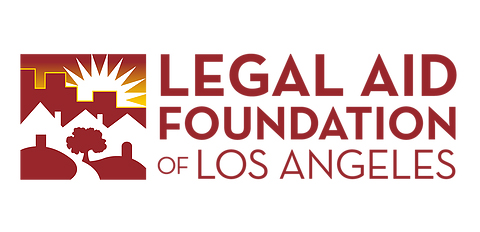
I recently taught foundational and advanced persuasive writing techniques to the splendid attorneys at Legal Aid Foundation of Los Angeles. As its mission, LAFLA “seeks to achieve equal justice for low-income people in greater Los Angeles. We change lives through direct representation, systems change and community education.”
I am grateful I had the opportunity to contribute to LAFLA’s mission. I have been very fortunate in my life, so in addition to my other volunteer work, I provide my writing programs to public interest legal organizations pro bono.
This was truly one of my favorite presentations. LAFLA’s attorneys were delightful and engaging. Barbara Schultz, Director of Litigation & Policy at LAFLA, complimented the presentation, stating: “[T]hanks so much for the training! I found it incredibly useful, and, having just reviewed the evaluations, so did everyone else. Your passion for teaching is very apparent and appreciated. I’d definitely like to plan some more trainings in the future.”
My program addressed two related topics to help the attendees make their writing more accessible and compelling: 1) writing short, clear sentences; and 2) employing advanced persuasive writing and editing techniques.
Techniques for writing short sentences
Advocacy begins with concise, clear sentences and paragraphs. You cannot persuade a court if the court does not understand you. Short, clear sentences are easier to understand, so they are more likely to persuade. In some of my previous posts I explained the benefits of writing short sentences and several techniques for writing them. I analyze additional means of writing short, clear sentences in this post.
Techniques for writing short sentences
We discussed several techniques for writing short sentences, including the following:
- Using active voice;
- Avoiding nominalizations;
- Changing complex phrases to simple words; and
- Reducing glue words.
While I have explained some of these methods in previous posts, I have not examined nominalizations. Nominalizations often diminish written advocacy: they turn beautiful verbs into ugly nouns. For example, “move” becomes “motion,” and “object” becomes “objection.” Nominalizations tend to have the following word endings: “ant,” “ance,” “ence,” “ment,” “sion,” and “tion.”
While nominalizations may be used judiciously—and sometimes are terms of art—three bad things generally happen when you use nominalizations:
- You write longer sentences;
- You are more likely to write passive sentences; and
- You—to your everlasting shame and regret—bury the action of a sentence in a noun.
Verbs convey action. Embrace and respect active verbs; do not demean them in nominalizations. If you use nominalizations, you will often prop them up with weak verbs. Instead, take the active verb from the nominalization and state it directly.
- Bad: The defendant’s statement caused reliance by the plaintiff.
- Good: The plaintiff relied on the defendant’s statement.
- Bad: The professor’s instruction resulted in his students’ demoralization.
- Good: The professor’s teaching methods demoralized his students. Or
The professor demoralized his students during class.
Techniques for writing clear sentences
We also discussed several techniques for writing clear sentences, including the following:
- Punctuating intelligently;
- Choosing words with care;
- Avoiding noun clusters;
- Avoiding subject-verb-object gaps;
- Keeping the subject, verb, and object of a sentence consistent;
- Creating unambiguous referents for your pronouns;
- Eliminating elegant variation; and
- Tabulating complex information.
I have not yet posted about avoiding noun clusters. Noun clusters are a long chain of nouns that serve primarily as adjectives. Noun clusters strain readers: they will gloss over noun clusters or get confused by which nouns serve as modifiers and which nouns serve as nouns. Some examples from a California agency’s website illustrate the perils of noun clusters.
- Alternative Trade Adjustment Assistance Individual Application
- That is six straight nouns! Congress partially caused this problem because it used a noun cluster — Alternative Trade Adjustment Assistance — when it passed the Trade Adjustment Assistance Reform Act of 2002.
- This agency was confronted with a noun cluster; rather than breaking up the noun cluster, it added to it!
- Benefit Overpayment Credit Card Payments.
- Five nouns!
Do not put more than three nouns together. Instead, break up noun clusters by inserting words between the nouns or rewriting your sentences to eliminate them. You can also alleviate this problem by hyphenating compound adjectives.
- “Alternative Trade Adjustment Assistance Individual Application” becomes “Individual Application for Alterative Trade Adjustment Assistance.” A four-word noun cluster remains, but because that noun cluster is a defined legal term it cannot be broken down further.
- “Benefit Overpayment Credit Card Payments” becomes “Paying back undue benefits with your credit card.”
Consider the following example from a website that vexes me biannually: the Los Angeles County Property Tax Portal. Here is a doozy from its FAQ page: “Taxpayers, using their Personal Identification Number or PIN, can access the past three years of their Secured Property Taxes Payment History.”
This noun cluster—like all noun clusters—is cumbersome and confusing. Which nouns serve as nouns and which nouns serve as adjectives? Is it the property taxes that are secured by property, or is it the property being taxed that is secured? After some research that I should not have had to conduct, I learned that the term “secured property taxes” means that the underlying property is secured, not the tax payments.
This noun cluster could be clarified in at least the following two ways. Each example uses intervening words to break up the noun cluster. The second example uses a hyphen to create the compound adjective “secured-property,” which modifies the noun “taxes.”
- Taxpayers, using their Personal Identification Number (PIN), can find the past three years of tax payments for their home.
- Taxpayers, using their Personal Identification Number (PIN), can access the past three years of their payment history for their secured-property taxes.
After we examined all these techniques for writing short, clear sentences, the fun really started. I assigned an exercise that asked the attendees to edit ten sentences that suffered from one or more writing flaws to give them an additional opportunity to apply and internalize my lessons.
We had a rich discussion during which attendees discussed their own edits. I also offered an annotated “answer key” that identified the errors in each sentence and proposed sample revisions. As usually happens in these fun sessions with smart people, our discussion amplified my understanding of ways to attack these writing flaws.
Advanced Persuasive Writing Techniques
We also discussed several persuasive writing techniques, including the following:
- Using strong nouns and active verbs to reduce adjectives and adverbs;
- Using syntax to create emphasis;
- Using substantive transitions—moving from old-to-new information—to highlight key facts and ideas;
- Using dashes to highlight interruptive phrases;
- Using semi-colons to compare and contrast points;
- Packing punch into every sentence by aggressively editing to turn sentences into clauses; and
- Using parallel construction to aid reader comprehension and add rhythm to sentences.
I applied many of these techniques in my annotated brief, but I will discuss these techniques in even more detail in a future post.
Evaluations
As I do for all my writing programs, I ask attendees to evaluate my program anonymously. I am grateful for the positive evaluations I received. Below are some representative comments, which are offered verbatim:
- “You are engaging and funny. Continue to give real-life examples and commentary b/c it makes writing more fun.”
- “Great presentation. Love your humor. Thank you!”
- “The writing exercises were very helpful. It’s very helpful to edit and then get immediate feedback. The 'good and bad' examples in your teaching materials were also very helpful.”
- “I learned from your writing exercises. Sentence revisions offered different interesting perspectives on concision.”
- “I found [the writing exercise] most helpful because I saw the need for multiple revisions & the primacy of simplification.”
- “Your handouts are really helpful. Will refer to them frequently.”
- “As a newer attorney I am often self-conscious of my writing when working w/ older more experienced attorneys. I am concise in my writing but my analysis could use punch and this helped me figure out how to do that.”
- “[The teaching materials] were very helpful to my understanding. I plan to have the booklet as a desk guide.”
- “The ‘Ten Techniques for Writing Short, Clear Sentences’ list was very helpful. Also enjoyed the entertaining examples and fun use of words.”
- “The teaching materials were helpful, especially the writing exercises.”
- “I learned from the writing exercises that it is difficult to decipher bad writing.”
- “The printed materials are really helpful.”
- “The writing exercises helped me understand b/c of the concrete examples.”
- “The examples between 'bad' and 'good' are incredibly helpful! They help illustrate your lessons.”
- “Your presentation was at the right level. I think attorneys at any years—from junior to senior—could benefit.”
- “The segments that helped me the most were on syntax; substantive transitions. Rhetorical techniques I’d not thought about in a long while. Good refresher.”
- “I liked the teaching materials and plan to review them (& the revised brief). I enjoyed the sentence revisions.”
- “I think [the teaching materials] gave many clear examples. I will refer to them in my future work.”
- "I enjoyed the writing exercises and examples; it helps to see the before & after of sentences.”
- “Writing exercises were great. Revising sentences is always helpful.”
- “The workshop was at the right level. This showed me practical tips to check my writing and taught me what types of language are more persuasive.”
- “The examples and exercises were great!”
- “Materials were great and easy to follow.”
- “The parts that helped me the most were learning techniques for persuasive construction (dashes; semi-colons)."
- “The most helpful part was the reminder to use active verbs and not using nominalizations.”
- “The section regarding clauses helped me the most. My writing can sometimes be choppy since I try to be concise, but using clauses is a way to vary my sentences.”
- “I will definitely use the printed booklet soon."
- “Exercises were most helpful, including your answer key for future reference. Reference lists in the booklet were also helpful.”
- “Examples of good & bad writing. It helps to compare and contrast bad writing with good writing.”
- “I enjoyed the writing exercises and examples; it helps to see the before & after of sentences.”
- “Presentation was perfect.”
- “Concrete examples for each topic helped.”
- “The re-wording exercise. It helps to force myself to actively think about what I am learning.”
- “The persuasive writing part was most helpful. Basically the entire second half of the presentation. I am very familiar with writing to be more efficient from my training as an English major. But the persuasive techniques were mostly very new to me.”
- “As a 4th year who is still honing my writing style, this session was perfect.”
- “I liked the teaching materials. It is good to have good/bad original/revised examples.”
- “Lessons on parallel construction & dashes helped the most.”
- “Exercise and powerpoint with concrete examples throughout helped the most.”
- “Teaching materials helped very much. I look forward to reviewing them in detail.”
- “Thank you for teaching us.”
My mission
I help make attorneys better writers. My legal writing programs teach concrete strategies and techniques pertinent to all aspects of written advocacy. My programs include excellent teaching materials, writing samples, and handouts that attendees can rely on in their future work. And my teaching methods ensure that attendees will not only value and enjoy my programs, but will apply and retain what they have learned.
I also offer individual writing instruction to attorneys who wish to improve their written advocacy, including attorneys whose employers wish to provide extra writing support. As part of my instruction, I critique attorneys’ actual memoranda to provide self-editing tools that allow them to approach their future work more effectively.
Join the attorneys whose writing has been enhanced by my instruction. Contact me to get started!

